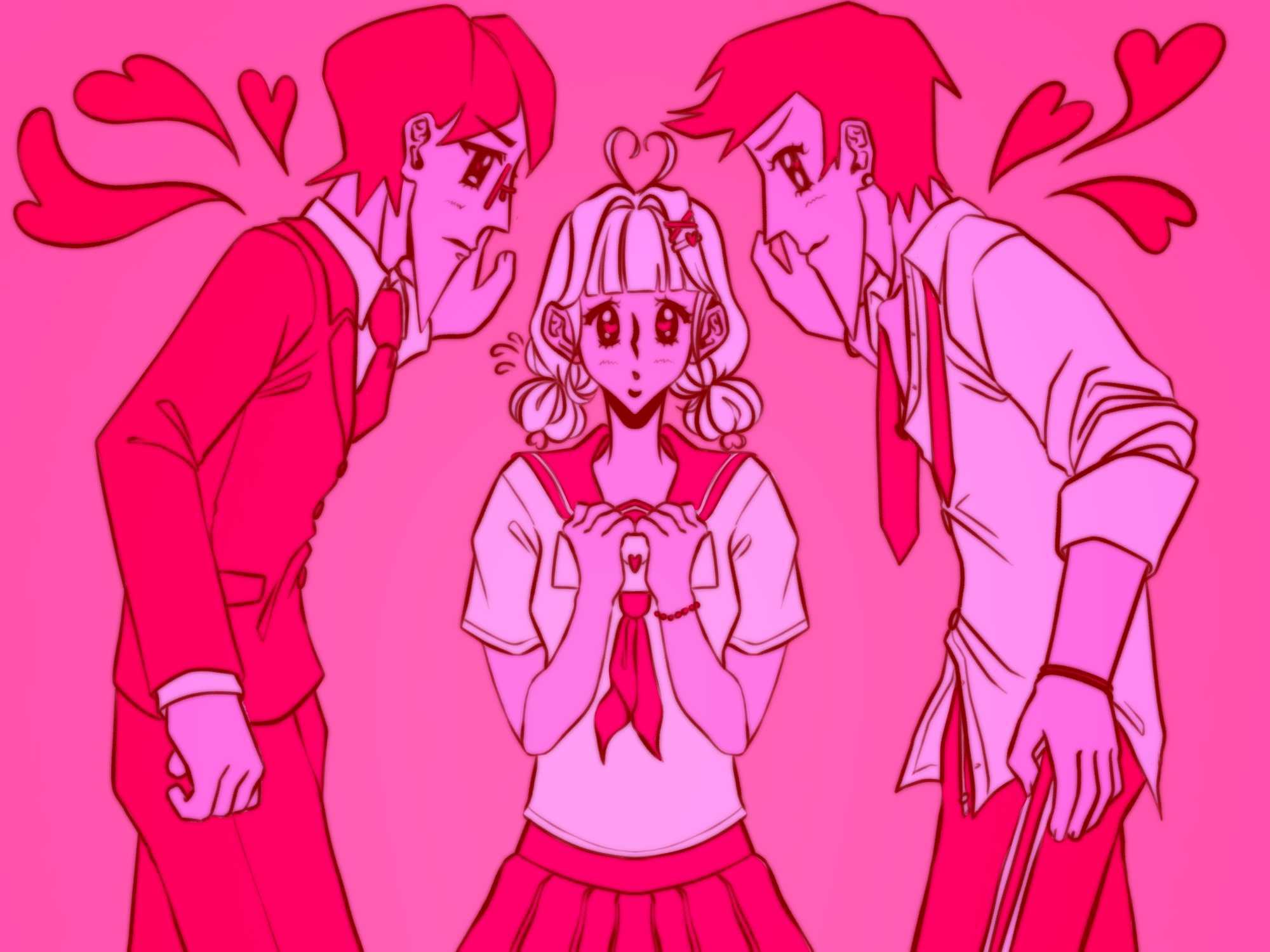Maybe you’re stuck between Team Conrad or Jeremiah; Damon or Stefan; or the classic Edward or Jacob. The one thing you have in common with all three of these scenarios is you’re falling for the allure of a teen love triangle.
But what makes love triangles so irresistible, and would we feel the same if it happened in real life?
On the most basic level, love triangles in film are an excellent way to increase viewership.
For example, my mother went from side-eyeing me every time I turned on “The Summer I Turned Pretty” to watching the show with me and shading Belly for not being able to stick by the right Fisher Brother — Conrad, obviously.
Most audiences crave drama in the stories they watch or read, and this is the best way to guarantee tension. It forces characters to choose, creates drama between rivals and leaves audiences guessing until the very end. Even if the rest of the plot is mediocre, a love triangle forces people to stick around just to see who “wins.”
The culture of choosing “teams” extends way beyond the hour-long episodes. It’s all over your social media pages, fanfiction, memes and talk shows too.
This interactive quality keeps love triangles alive because it becomes part of the social experience of watching the story unfold. It’s been nearly 18 years since the last episode of “Gilmore Girls” aired, and you can still find subreddits debating over whether it was Dean, Jess or Logan that was the best for Rory.
There’s something phenomenally interesting about the lengths the members of each team would go to defend their character. For instance, Team Jeremiah’s out there justifying cheating — no shade — while Team Conrad obliterates Jeremiah’s character every chance they get.
Another aspect that has recently surfaced with respect to love triangles is the audience being on neither team and choosing the main character. This could happen in two ways. The first is when the audience thinks the main character needs to choose themselves. The other scenario is when they think the main character should leave the love interests alone because they’ve meddled with their lives enough — like those on Team Anti-Belly.
In the past few weeks, you might’ve heard fans insist you have to be Team Conrad. Why is that?
Fictional love triangles mirror the messiness of real-life dating and attraction. While exaggerated, they capture the essence of real dating dilemmas, so it has people projecting their own experiences onto the characters.
For some, it could be the fantasy of being desired. Love triangles set up a stage for attractiveness and self-worth in a way people secretly crave.
For others, it could just be exciting to watch jealousy and rivalry unfold onscreen. Those are emotions people generally tend to avoid in real life, but experiencing them through a show or a movie is another story.
At their core, love triangles aren’t just about who gets the girl or guy — they’re this tug-of-war between stability and passion or the safe choice and the exciting one. They are about the road taken and the road not taken. And in most cases, the roads already traveled are the ones you finally choose to stay on.

When you put it that way, it sounds ironic when the character, at the end, says something along the lines of, “You were the only one for me.” If they truly were the one, no one else would have been an option.
That ties me to the second part of my original question: Would we feel the same about love triangles if they happened in real life?
Sure, it’s exciting to watch the main character navigate through their life and be forced to pick teams. But if this were your life, would you really enjoy being an option? Or if you were the one stuck in the middle, would it be morally right for you to string both of them along until you get to choose?
Love triangles, in their moral sense, are a warped perception of romance. There should be no choice between safe love and exciting love. Real love should be your safe space while making you feel excited and passionate.
There’s nothing romantic about being someone’s second choice. If this were real life, the healthiest move would be to walk away the moment you become an option — not wait around hoping to be chosen.
At the end of the day, love triangles thrive in fiction because they serve drama without the consequences. They let us play out the scenarios of being chosen, the thrill of rivalry and the debate between passion and safety, all from the comfort of our own homes.
In real life, we’d try to avoid such a situation as much as we can. But onscreen, we’ll keep choosing teams and arguing in comment sections because love triangles remind us that love can be messy and impossible to look away from — and maybe that’s why we’ll never stop falling for them.